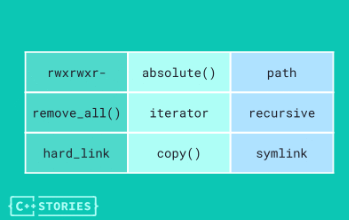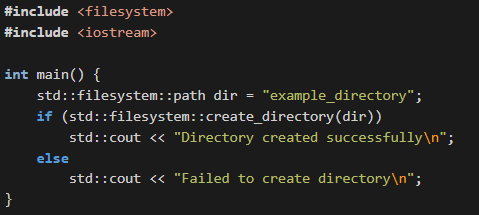CppCon 2024 Deciphering C++ Coroutines - Mastering Asynchronous Control Flow -- Andreas Weis
![]() Registration is now open for CppCon 2024! The conference starts on September 15 and will be held in person in Aurora, CO. To whet your appetite for this year’s conference, we’re posting some upcoming talks that you will be able to attend this year. Here’s another CppCon future talk we hope you will enjoy – and register today for CppCon 2024!
Registration is now open for CppCon 2024! The conference starts on September 15 and will be held in person in Aurora, CO. To whet your appetite for this year’s conference, we’re posting some upcoming talks that you will be able to attend this year. Here’s another CppCon future talk we hope you will enjoy – and register today for CppCon 2024!
Deciphering C++ Coroutines - Mastering Asynchronous Control Flow
Thursday, September 19 09:00 - 10:00 MDT
by Andreas Weis
Summary of the talk:
One of the most powerful applications of coroutines is in the context of asynchronous operations, where their use allows for significant simplifactions of application code. Unfortunately, building an asynchronous library interface to enable such benefits for applications is not exactly straightforward in C++.
In this talk we will explore the essentials of managing asynchronous control flow with coroutines. We will discover how to reconstruct the call stack of nested asynchronous calls and thus bridge a significant gap between C++'s stackless coroutines and the stackful coroutines from other languages. We will learn how to build a mechanism similar to the async/await from languages like Python or Javascript for our own libraries. And we will explore how we can perform arbitrary manipulations of the call stack in such an environment to unleash the full power of C++'s coroutine mechanism.
At the end of this talk we will have a proper understanding of how the Task<> type found in many coroutine libraries works and how it can be used to manage asynchronous operations. This will serve as an important building block for understanding more advanced mechanisms, like the sender/receiver mechanism proposed for C++26.
This talk assumes basic familiarity with the components of the C++ coroutines language feature: promises, awaitables, coroutine handles, and passing data in and out of coroutines.
This is the second part in an ongoing series of talks about C++20 coroutines.
Andreas Weis has been writing C++ code in many different domains, from real-time graphics, to distributed applications, to embedded systems. As a library writer by nature, he enjoys writing portable code and exposing complex functionalities through simple, richly-typed interfaces. Both of which C++ allows him to do extensively.Andreas is also one of the co-organizers of the Munich C++ User Group, which allows him to share this passion with others on a regular basis.

 Working with the filesystem can be a daunting task, but it doesn’t have to be. In this post, I’ll walk you through some of the most common filesystem operations using the powerful features introduced in C++17, as well as some new enhancements in C++20/23. Whether you’re creating directories, copying files, or managing permissions, these examples will help you understand and efficiently utilize the
Working with the filesystem can be a daunting task, but it doesn’t have to be. In this post, I’ll walk you through some of the most common filesystem operations using the powerful features introduced in C++17, as well as some new enhancements in C++20/23. Whether you’re creating directories, copying files, or managing permissions, these examples will help you understand and efficiently utilize the 